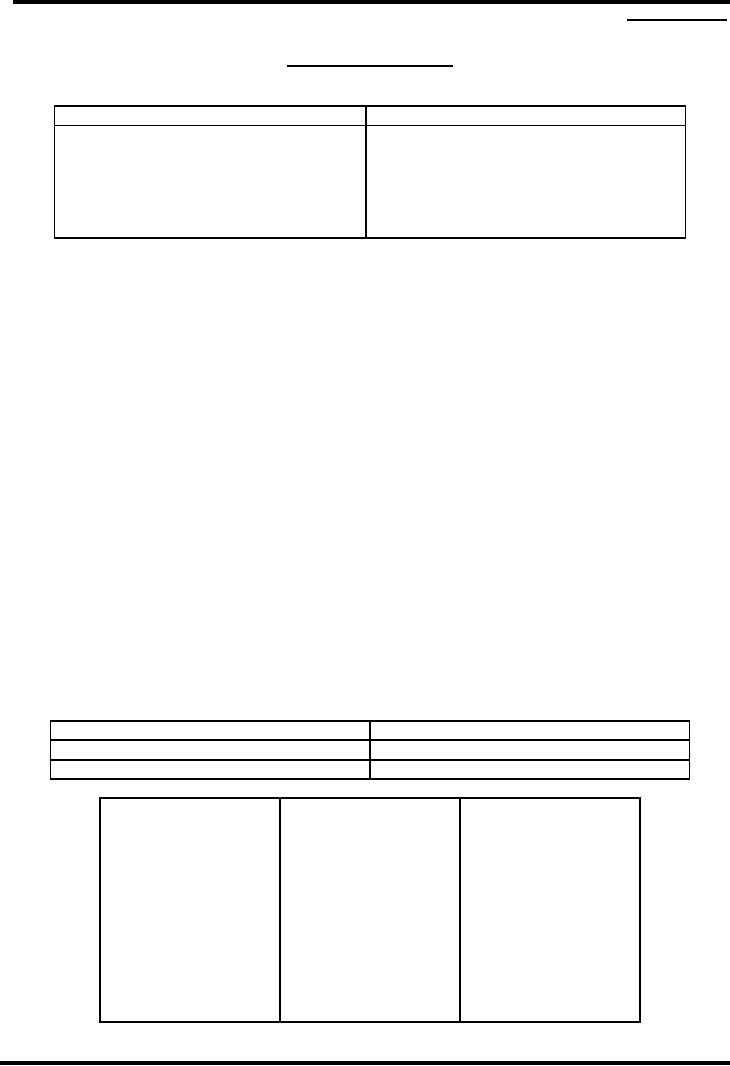 |
REPORTED SPEECH:Indirect Questions, Direct commands |
| << MODIFIERS AND SENTENCE TYPES:COMPOUND SENTENCES |
| GRAMMATICAL SENTENCE – ISSUES:SUBJECT-VERB AGREEMENT >> |

Journalistic
Writing MCM310
VU
LECTURE
14
REPORTED
SPEECH
Direct
Speech
Indirect
Speech:
The
speaker said, "When the
inquiry was
set
The
speaker said that when the
inquiry had
up
last year, the
Government was
been
set up in the
preceding
year the
prompted
by
both national and
local
Government
had been prompted by
both
motives."
national
and local motives.
Indirect
Speech (also referred to as 'reported
speech') refers to a sentence
reporting what someone has
said. It
is
almost always used in spoken
English.
If
the reporting verb (i.e.
said) is in the past, the reported clause
will be in a past form. This
form is usually one
step
back into the past from the
original.
For
example:
He
said the test was
difficult.
She
said she watched TV every
day.
Jack
said he came to school every
day.
If
simple present, present perfect or the
future is used in the reporting
verb (i.e. says) the tense
is retained.
For
example:
He
says the test is
difficult.
She
has said that she
watches TV every day.
Jack
will say that he comes to
school every day.
If
reporting a general truth the
present tense will be
retained.
For
example: The
teacher said that phrasal
verbs are very
important.
RULES
FOR CHANGING DIRECT INTO
INDIRECT:
1.
Pronoun Change:
First
person pronoun according to
the
Subject
Second
person pronoun according to
Object.
Third
person pronoun
No
change.
Subject
Pronoun:
Possessive
Pronoun:
Object
Pronoun:
First
Person:
First
Person:
First
Person:
I
My
Me
We
Our
Us
Second
Person:
Second
Person:
Second
Person:
You
Your
You
Third
Person:
Third
Person:
Third
Person:
He
His
Him
She
Her
Her
It
Its
It
They
Their
Them
47

Journalistic
Writing MCM310
VU
For
example:
1.
He said, "I like
you."
He
told me that he liked
me.
2.
He said, "I will accept your
offer."
He
told me that he would accept
my offer.
2.
Adjective and adverb
changes:
�
This
becomes
That
�
These
becomes
Those
�
Here
becomes
There
�
Now
becomes
Then
�
Today
becomes
That
day
�
Yesterday
becomes
Preceding
day or previous day
�
Tomorrow
becomes
Next
day or following day
3.
Verb changes:
�
See
(pres.)
becomes
saw
(past)
�
Saw
had
seen
�
Is
seen
was
seen
�
Has
seen
had
seen
�
Was
seeing
had
been seen
�
Shall
/will
should/would
�
Be
were
�
Can/may
could/might
For
example:
�
Direct
speech:
"In
many parts of the country
farmers who were formerly
ploughing nearly all their
land now have most of
it
under grass."
�
Indirect
speech:
He
said that in many parts of
the country farmers who
had
formerly
been ploughing nearly all
their land
then
had most
of it under grass
Indirect
Questions
When
reporting questions, it is especially
important to pay attention to
sentence order. When
reporting yes/no
questions
connect the reported question using 'if'.
When reporting questions
using question words (why,
where,
when,
etc.) use the question
word.
For
example:
�
She
asked, "Do you want to come
with me?" BECOMES
She
asked me if I wanted to come
with
her.
48

Journalistic
Writing MCM310
VU
�
Dave
asked, "Where did you go
last weekend?" BECOMES
Dave
asked me where I had gone
the
previous
weekend.
�
He
asked, "Why are you studying
English?" BECOMES
She
asked me why I was studying
English.
�
"Will
he come?" BECOMES
He
asked would he come.
Direct
commands:
"Give
all the help you can."
BECOMES
He
asked
that they should give all
the help they could. Or He
asked
them to give all the
help they could. Or Let them give
all the help they
could.
Desires:
�
"Hurrah!
We have won the match." BECOMES
They
exclaimed with joy that they
had won the match.
Check
again:
He
said, "I live in
Paris."
He
said he lived in Paris.
He
said, "I am cooking
dinner."
He
said he was cooking
dinner.
He
said, "I have visited London
twice."
He
said he had visited London
twice.
He
said, "I went to New York
last week."
He
said he had gone to New York
the week before.
He
said, "I had already
eaten."
He
said he had already
eaten.
He
said, "I am going to find a new
job."
He
said he was going to find a
new job.
He
said, "I will give Jack a
call."
He
said he would give Jack a
call.
Source:
http://esl.about.com/od/grammarintermediate/a/reported_speech.htm
49
Table of Contents:
- INTRODUCTION TO JOURNALISTIC WRITING:Practical, THINGS TO KNOW
- QUALITIES OF GOOD WRITERS
- QUALITIES OF GOOD WRITERS
- QUALITIES OF GOOD WRITING:Achieve appropriate readability:
- QUALITIES OF GOOD WRITING:Be concise, Be creative, Be correct
- THE PROCESS OF WRITING:INVENTION, WHEN YOU START TO WRITE
- THE PROCESS OF WRITING II:ORGANIZING, DRAFTING, REVISING
- ALL ABOUT WORDS:HOW WORDS ARE FORMED?:SUFFIXES
- DICTIONARY-A WRITER’S LANGUAGE TOOL:KINDS OF INFORMATION
- PARTS OF SPEECH:Noun Gender, Noun Plurals, Countable Nouns
- BASIC CLAUSE PATTERNS
- ACTIVE AND PASSSIVE VOICE
- MODIFIERS AND SENTENCE TYPES:COMPOUND SENTENCES
- REPORTED SPEECH:Indirect Questions, Direct commands
- GRAMMATICAL SENTENCE – ISSUES:SUBJECT-VERB AGREEMENT
- GRAMMATICAL SENTENCE – ISSUES II:SENTENCE FRAGMENTS
- EFFECTIVE SENTENCE:PARALLELISM, NEEDED WORDS, SHIFTS
- STYLE: GUIDELINE AND PITFALLS I:COLLOQUIAL VS FORMAL, CIRCUMLOCUTION
- STYLE: GUIDELINE AND PITFALLS II:AMBIGUITY, REDUNDANCY, EUPHEMISM:
- PARAGRAPH WRITING: TYPES AND TECHNIQUES:STRUCTURE
- PARAGRAPH WRITING: TYPES AND TECHNIQUES:Putting on Our Play
- ESSAY WRITING:VARIOUS STRATEGIES FOR ESSAYS, PROMPTS
- SIGNAL WORDS:Non word Emphasis Signals
- EXPOSITORY WRITING:LOGICAL FALLACIES, APPEAL TO EMOTION
- THE WRITING STYLES: REPORT and NARRATIVE WRITING, SHORT REPORTS
- THE WRITING STYLES: DESCRIPTIVE AND PERSUASIVE WRITINGS, Observation
- RESEARCH WRITING AND DOCUMNETING SOURCES:Handling Long Quotations
- Summary and Précis Writing:CHARACTERISTICS OF GOOD SUMMARY
- Punctuation:THE PERIOD, THE COMMA, THE SEMICOLON, THE COLON
- MECHANICS:ABBREVIATIONS, NUMBERS, SPELLING, THE HYPHEN
- READING SKILLS FOR WRITERS:EDUCATED READING, STEPS
- PARTS OF A NEWSPAPER:Box-out, By-line, Caption, Exclusive, Feature
- THE LANGUAGE OF THE NEWSPAPERS II:BROADSHEET NEWSPAPER
- News Writing and Style I:WHAT TO LOOK FOR IN A NEWSPAPER
- NEWS WRITING II:Accuracy, Clarity, Style, Qualities of Effective Leads
- EDITORIAL WRITING:WRITING AN EDITORIAL:STRUCTURING AN EDITORIAL
- WRITING FEATURES:GENERATING FEATURE STORY IDEAS
- WRITING COLUMNS:Column and a news report, Purpose, Audience
- WRITING ARTICLES FOR NEWSPAPERS:The Heading, The Lead
- WRITING ANALYSIS:purpose, scope, method, results, recommendations
- LETTERS TO EDITORS:Four important aspects about letters, Organizing letters
- BROADCAST AND WEB NEWS WRITING:WRITE CONCISELY, BROADCAST STYLE
- WRITING PRESS RELEASE, REVIEWS AND OBITUARIES:Summary of Content:
- THE ART OF INTERVIEWINGS
- FINAL THOUGHTS:Practical, Job-Related, Social, Stimulating, Therapeutic